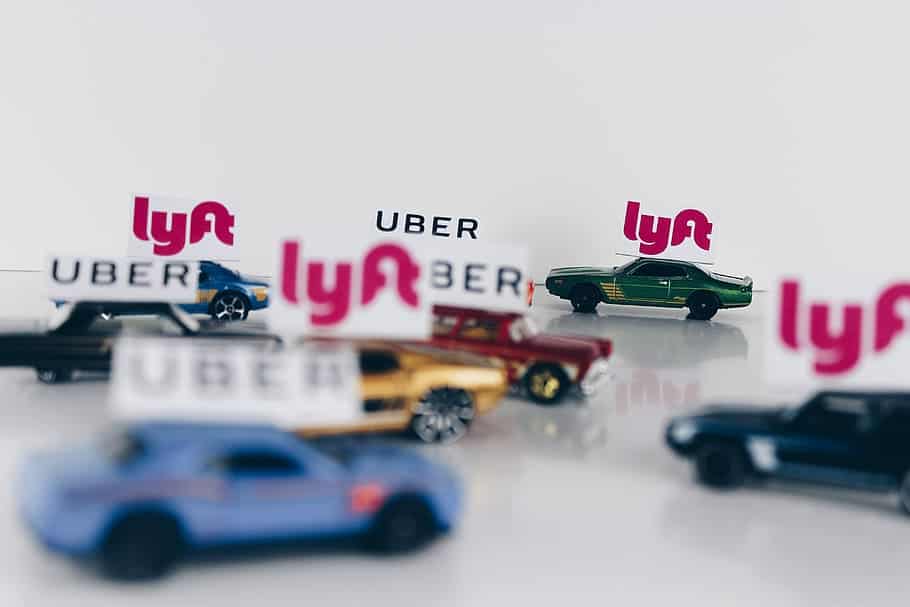
Swap Agrawal is a student at Harvard Law School.
In this weekend’s news and commentary, Uber and Lyft drivers in New York City go on strike and Hyundai divests from an Alabama factory due to child labor violations.
On February 26, Uber and Lyft drivers in New York City began a 12-hour strike at LaGuardia Airport. Drivers participating in the strike will refuse pickups at LaGuardia Airport from noon to midnight. The strike was organized by the New York Taxi Workers Alliance (NYTWA), a union that represents 27,000 drivers in New York City. More than half drive for Uber and Lyft. The drivers are calling for a pay increase, including a raise for operating costs, a stop to unfair driver deactivations, more for out-of-town trips and 85 percent of their fare or the full Taxi and Limousine Commission (TLC) rate.
The drivers are also protesting a lawsuit Uber filed in December to stop a rate hike approved by the TLC. In early January, Manhattan Supreme Court Justice Arthur Bergeron ruled that the TLC had not sufficiently justified its reasoning behind the chosen rates, stating that the agency “failed to include a single mathematical computation explaining how it arrived at its numbers.” The city had backed up the planned pay hike by citing raging inflation, noting at the time of its order on Nov. 15, the transportation component of the consumer price index was up 23.93%.
Sunday’s strike comes days before a TLC hearing on the reworked rate hike rule. “As promised, we are continuing to fight to protect the minimum pay standard that the City’s hardworking drivers deserve,” said TLC Commissioner David Do in a statement. “We have proposed a new rule that increases minimum pay and contains detailed explanations of our calculations. We sincerely hope that there will be no further attempts to thwart this much needed pay adjustment.”
On February 24, Hyundai Motor Co. sent a letter to shareholders announcing plans to divest from a factory in Alabama after a Reuters investigation last year found that children as young as 12 were working there. Hyundai Chief Executive Jaehoon Chang wrote that the company plans to sell its majority stake in SMART Alabama LLC, which has supplied parts to Hyundai’s Montgomery plant since 2003. Mr. Chang also stated that SMART Alabama and another parts supplier, SL Alabama, had terminated relationships with third-party staffing agencies which the company blamed for falsely certifying that the children were eligible to work. SL Alabama paid fines earlier this year from federal court and the Alabama Department of Labor after investigators also found children working in its factories.
This recent incident is part of a pattern of increasing child labor violations. In 2015, the Department of Labor’s Wage and Hour Division (WHD) found 1,012 minors employed in violation of child labor laws, with an average of 1.9 per case. In 2022, that number more than tripled to 3,876, averaging 4.6 per case. The WHD also found that children are increasingly working in dangerous jobs, such as meatpacking facilities, construction jobs, and manufacturing plants. Many of the children “working in exploitative situations tend to be from immigrant families” and Latino, said Reid Maki director of child labor advocacy for the National Consumers League.
The New York Times recently published an article highlighting the stories of over 100 Central American migrant children working in food processing plants, construction, and service industries. Many of these children came to the US unaccompanied and have been released by the Department of Health and Human Services (HHS) to sponsors that are exploiting their labor. Caseworkers interviewed by the Times said that two-thirds of all unaccompanied migrant children end up working full time and that HHS regularly ignores obvious signs of labor exploitation.






Daily News & Commentary
Start your day with our roundup of the latest labor developments. See all
February 27
The Ninth Circuit allows Trump to dismantle certain government unions based on national security concerns; and the DOL set to focus enforcement on firms with “outsized market power.”
February 26
Workplace AI regulations proposed in Michigan; en banc D.C. Circuit hears oral argument in CFPB case; white police officers sue Philadelphia over DEI policy.
February 25
OSHA workplace inspections significantly drop in 2025; the Court denies a petition for certiorari to review a Minnesota law banning mandatory anti-union meetings at work; and the Court declines two petitions to determine whether Air Force service members should receive backpay as a result of religious challenges to the now-revoked COVID-19 vaccine mandate.
February 24
In today’s news and commentary, the NLRB uses the Obama-era Browning-Ferris standard, a fired National Park ranger sues the Department of Interior and the National Park Service, the NLRB closes out Amazon’s labor dispute on Staten Island, and OIRA signals changes to the Biden-era independent contractor rule. The NLRB ruled that Browning-Ferris Industries jointly employed […]
February 23
In today’s news and commentary, the Trump administration proposes a rule limiting employment authorization for asylum seekers and Matt Bruenig introduces a new LLM tool analyzing employer rules under Stericycle. Law360 reports that the Trump administration proposed a rule on Friday that would change the employment authorization process for asylum seekers. Under the proposed rule, […]
February 22
A petition for certiorari in Bivens v. Zep, New York nurses end their historic six-week-strike, and Professor Block argues for just cause protections in New York City.